Coffee Could be Killing You!
Esquire reports that good coffee is bad for you:
That “freshly roasted organic” coffee you’re drinking? It is probably not very good for you — nor is it organic. Here’s why: Coffee is roasted in exhaust — not exactly the same kind of exhaust that spews from your neighbor’s Hummer, but the principle is not much different. Nearly all coffee, and all the good stuff, is cooked in the heat of a gas burner where hot air is generated by burning fuel and forcing the resulting hot air through coffee beans tumbling in a drum. Although this is perfectly legal, it isn’t as harmless as you might think.
Not too long ago, studies conducted in places as far-flung as Germany and Cincinnati found that the additives in natural gas and the chemical reactions in the roasting drum create hydrogen sulfide (H2S), which is poisonous and flammable. Worse, measurable amounts of this deadly gas linger in the bean long after it has bean roasted. This is what one scientist had to say:
“Coffee beans which are roasted with flame gases are bathed in the combustion gases and as a consequence take up a part of the deleterious combustion gases, especially H2S. Such adhering gases cannot be completely removed by an airing lasting 8 to 10 hours and more.”
The key here is to allow the bean to “breath off” these gases for a period of four to five days, sadly calling into question the “freshly roasted” campaigns of nearly every roaster on the planet — they mean what they say, serving beans that are right out of the roaster. (They’re sacrificing flavor by doing that, incidentally — four to five days is also the amount of time it takes for the tasty oils of the bean to mature.)
Well, like the man says, you gotta go sometime.
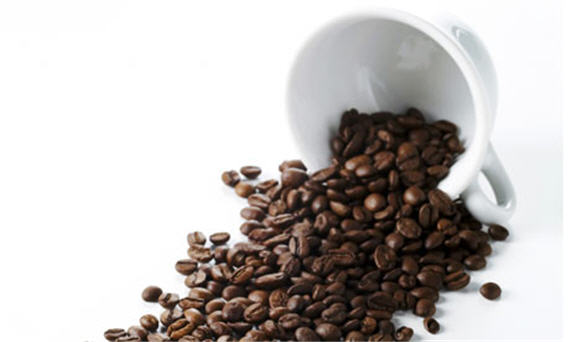

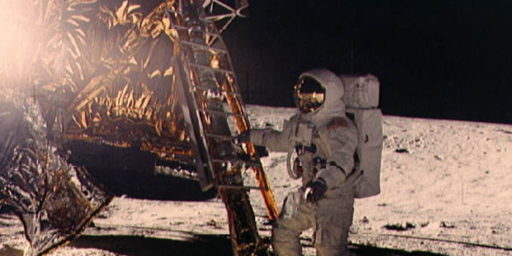

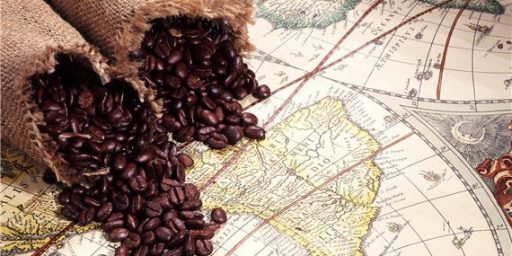
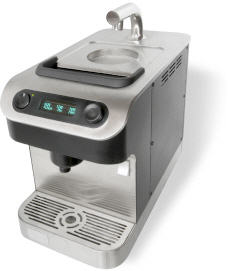
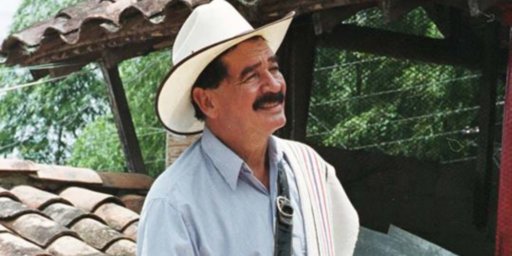
Going to have to file this under “acceptable risks”.
The exposure rates mentioned here are absolutely insignificant and pose no threat to a persons health.Ther are plenty more dangerous things to be concerned about,
like radon on your penthouse balcony on a windy day..
If the residual H2S in coffee beans is dangerous [after brewing, no less] then one drive by a refinery in an airconditioned car at 75MPH would result in immediately dangerous exposure to H2S.
Not to mention that coffee has the highest acidity level of any food or drink – which causes all kinds of illnesses…but yeah, going to have to agree with GS above!
Are beans extracted from civet shitok? (The fact that drinking the stuff could put you in the poorhouse notwithstanding.)
This is why I disinfect my coffee with bourbon.
Heh. And just a couple years ago they were saying coffee drinking was good because of the anti-oxidants. I’ll file this under “garbage.”
Oh, and Rick Almeida is a very wise man.
In the UK we get an endless parade of articles informing us what the latest thing is that scientists have found will kill you, matched only by the number of things that will apparently let you live to 100. It’s got to the point where somebody quipped that the Daily Mail divides everything in the world into two categories: Things that give you cancer and things that help you to avoid getting cancer.
Now, there’s almost certainly some good, empirically-sound, reproducable-results science in there somewhere. However, there’s also a lot of junk – much of it deliberately fed to gullable journos by PR and marketing companies. Overall, I think common sense remains as good a guide as anything. There seems to be an assumption these days that it’s better to live a fairly boring, sterile life, worryign and engaging in minute calibration of what you consume, inhale, allow near you etc and die at 85 than it is to enjoy yourself while exercising a moderate degree of common sense and restraint and die at 83. For some people, maybe that’s the case. Personally, I’ll take my chances.
I have a coffee roaster. Its’ kind of a pain so I don’t use it much. It is electric. It blows fresh heated air in the roast cycle and really a lot of fresh unheated air in the cool-down cycle. If you cared you could buy such a thing.
FWIW, I’d expect most roasters just blow heat from a natural gas flame (natural gas exhaust is _very_ clean), and they all _must_ do a rapid cool-down to halt roasting and preserve flavor.
It’s kind of interesting that the optimum brew time is 24-48 hours after roasting, so those fresh roast and overnight shipping places have it about right.
All told, the story sounds half-right to me and over-hyped. Smoke from our grills and barbecues probably exceed this as a health risk by far.
from an old joke:
“You should know that your grandfather died last month. He drowned in a vat of whiskey, at the Jameson’s factory. Three large men jumped in to save him, but he fought them off valiantly…”
Some things are simply too important to worry about dying over.
Shorter: the goal of coffee roasting is to get rid of the smoke. the goal of meat smoking is to capture the smoke
(really crazy to me that smoke-in-a-bottle is legal)
Is it just me or is everything we think we know about the relative health merits of food completely reversed every 10-20 years? Every year the population lives longer, and yet we are constantly bombarded with Chicken Little stories of the sky falling. Sigh.
If you can’t have salt, cofee, or salty coffee, I predict that sailors will avoid New York City.
What isn’t slowly killing me?
Where does this author get their coffee. Sounds horrible. For commercially roasted coffee, I prefer hot drum roasting since it brings out more subtle aspects of the roast. Also, coffee is best 1-3 days after roasting when the off-gassing stops and oxygen starts invading not 5 days. Sounds like this guy buys coffee out of those barrels at the yuppie food mart unaware the exposure to air degrades the coffee.
Obviously, the author would be horrified if they knew of the processing of some varieties of green coffee beans. Coffee held in open warehouses for monsoon season, surely someone could find something wrong with that.
I’ll tell you what’s killing me ….
(1) Worrying about all the things that “could” kill me.
(2) Keeping track of all the things that “could” kill me. Where’s my list?
(3) Trying to decide if “they” have now done a 180 and coffee is back being “good” for me which “expert” I should follow. (Damn, a couple of years ago I was told that caffeine was supposed to get rid of my dental tartar.)
I only have one question …. Did the author of this study have a Nobel Prize?
Does the author of this study have stock in tea?
Interesting, the author of the article runs a string of coffee cafes as well as some brand blends. In the end, his advice is to skip organic coffee. I didn’t see any of the blends listed as organic. One thing that doesn’t appear is that he is an actual roaster. The problem appears to be that people want organic coffee but then the roasting puts in minute chemical changes that organic nuts might not like.
The common complaint that ‘science first tells us coffee is good, then tells us coffee is bad’ is a bit unfair, for several reasons:
– What you read about are studies or experiments that focus on specific items. It is entirely possible that coffee might help with cholesterol but hurt with heart palpitations, or be good for digestion in small doses but cause stomach problems in high doses.
– These subtleties usually gets lost in the media blare. The NYT often goes into some detail when reporting on a study, but your local news will only give one or two sentences.
– Readers tend to ignore the caveats. A NYT article may end with “researchers caution this is a small study and hasn’t been reproduced in humans”, but people tend to brush that aside as an excess of caution. In fact, amongst scientists, studies like that are motivators to do a big study, not to change scientific thinking.
– Media, and perhaps researchers, focus on the dramatic number. So they might say “1000 people a year will have heart attacks because of the levels of compound x in coffee.” Sounds dramatic, but in the US probably 200 million people a year drink coffee. Put another way, it’s very roughly equivalent to hitting one of the lottery jackpots.
– And, in the case of coffee at least, a lot of these affects are so much smaller than the well known effects of caffeine that, although of interest to scientists, it is not really significant. It’s like a study that show people who use jet skis are more likely to die from water borne bacterial infections than swimmers. If that were true (as far as I know, it isn’t) it would be a really interesting thing to understand. But as for actual consequences, it would most likely be insignificant in comparison to the number of people who get their heads smashed in by running into piers and boats.
You know what, MarkedMan, if the reports are so small as to need a caveat then I say don’t put them on the front pages of newspapers or blare them over the evening news …. which don’t usually carry any caveats!
Is it just me or is everything we think we know about the relative health merits of food completely reversed every 10-20 years?
That’s one of the main jokes in Woody Allen’s Sleeper.
Maggie Mama – couldn’t agree more. Although I have seen some good articles along the lines of “Scientists are now looking for a link between x and y because of early indications yada yada yada.” As a news consumer and geek I appreciate such things.